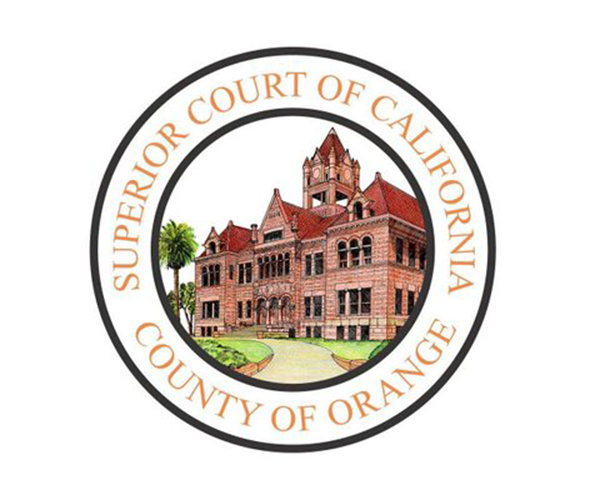
State Judge Rules Drug Companies Not Liable For Opioid Epidemic in California
Ruling marks first major win for pharmaceutical companies for opioid crisis issues in the U.S.
By Evan Symon, November 2, 2021 4:51 pm
Orange County Superior Court Judge Peter Wilson gave a tentative ruling on Monday finding that multiple drug companies, including Purdue Pharmaceuticals, Johnson & Johnson, AbbVie and other large drug companies not guilty for helping supply the U.S. opioid epidemic.
Originally filed in April, The People of the State of California v. Purdue Pharma, et. all was one of the first major lawsuits brought forth against the drug companies in the country.
However, an August U.S. Bankruptcy Court ruling fined Oxycontin-maker Purdue Pharmaceuticals $10 billion, and the Sackler family, who owns the company, was ordered to pay $4.5 billion.
Judge Wilson found that the plaintiffs, the counties of Los Angeles, Orange, and Santa Clara, plus the city of Oakland, did not sufficiently prove their $50 billion case. They argued that the drugmakers downplayed the addictive qualities of opioid drugs, misled the public based on condition and need, and overstated the benefits of opioids. As they led to millions of addictions, overdoses, deaths, and health complications by users over the years, the three Counties and Oakland came up with a $50 billion figure to help lessen the crisis through things like opioid addiction and treatment programs, as well as collecting penalties for wrongdoing.
“The drugmakers successfully transformed the way doctors treat chronic pain, opening the floodgates of opioid prescribing and use,” the lawsuit said about the drug companies. “This explosion in opioid prescriptions and use has padded Defendants’ profit margins at the expense of chronic pain patients.”
Judge Wilson cited a lack of evidence in ruling against the companies as the plaintiffs had not provided anything to show that the companies promotions and advertising caused doctors to write unnecessary prescriptions for opioids or create a public nuisance. He then agreed with the companies that the opioid epidemic shouldn’t be a legal public nuisance due to federal and state agencies finding that the benefits medically appropriate prescriptions were above any harm caused by the drugs.
“There is simply no evidence to show that the rise in prescriptions was not the result of the medically appropriate provision of pain medications to patients in need,” Judge Wilson said in his ruling. “Any adverse downstream consequences flowing from medically appropriate prescriptions cannot constitute an actionable public nuisance.”
Wilson also acknowledged that drug abuse hospitalizations and deaths caused by opioids “starkly demonstrated the enormity of the ongoing problem.”
A $50 billion lawsuit by 3 Californian Counties, Oakland
The drugmakers, who had argued that “opioid medications are an appropriate treatment for many chronic-pain patients and that much of their marketing mimicked approved warnings by the U.S. Food and Drug Administration,” expressed relief on Monday following the ruling, avoiding what would have been the largest fine against the drug companies in any legal case so far.
“The opioid crisis is a tremendously complex public health issue, but the decision showed that we engaged in appropriate and responsible marketing of prescription painkillers,” said Johnson & Johnson in a statement on Monday. The other companies gave similar statements, with Teva saying that “a clear win for the many patients in the U.S. who suffer from opioid addiction will only come when comprehensive settlements are finalized and resources are made available to all who need them.”
Currently, many opioid drug settlements, including a $26 billion settlement by Johnson & Johnson and three pharmaceutical distributors, have either been made or are in the process of negotiation.
Lawyers for the state did not comment on the tentative ruling, with lawyers on other major opioid cases nationwide, such as Jayne Conroy, Paul Farrell, and Joe Rice, saying that while they strongly disagreed with the California ruling that it would not effect their cases nationwide.
However, legal experts noted told the Globe that the Orange County ruling could very well influence other decisions.
“Anyone who says that one case ruling won’t affect another is being extremely naïve,” explained former court clerk Helena James to the Globe on Tuesday. “It happens all the time.
“And remember, these cases will be coming in for decades to come. There have been over 3,300 filed at the state-level down against opioid companies in the last decade. A few have been settlements, an Oklahoma ruling a few years ago for $465 million to be paid by J&J is currently being appealed, and rulings will come out soon in West Virginia, Ohio, and New York. That’s only a small bunch down out of thousands sitting in the court system. And now that the Orange County Judge has ruled for the companies, who knows if that will influence the others, especially on finding a lack of evidence.”
The three Counties and Oakland, meanwhile, said that they planned to appeal the ruling to “ensure no opioid manufacturer can engage in reckless corporate practices that compromise public health in the state for their own profit.” A formal appeal will likely be filed soon.
- Sen. Dave Min Narrowly Defeats Scott Baugh in 47th District House Race - November 13, 2024
- U.S. District Court Halts Oakland Airport From Using ‘San Francisco Bay’ In Name - November 12, 2024
- Former NASA Chief Of Staff George Whitesides Defeats CA Rep. Mike Garcia - November 12, 2024




